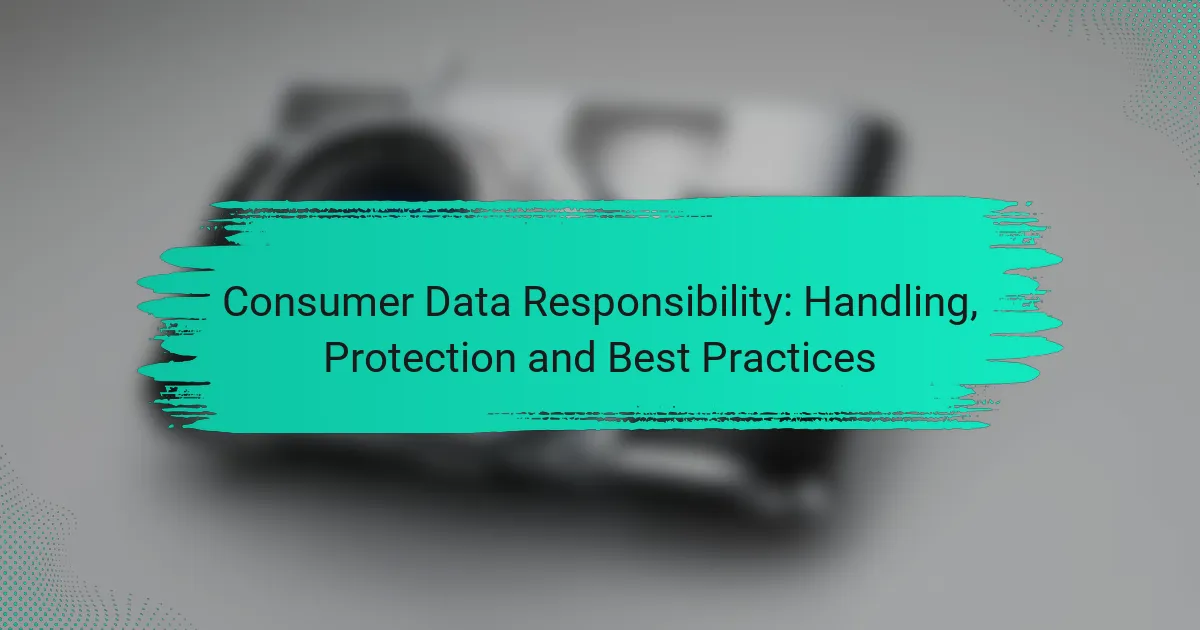The General Data Protection Regulation (GDPR) establishes essential principles for the lawful and transparent processing of personal data, emphasizing the importance of protecting individuals’ rights and privacy. Organizations in the UK must adopt specific measures to ensure compliance, which includes understanding data handling practices and maintaining transparency with data subjects. Additionally, GDPR grants individuals various rights that empower them to manage how their personal data is collected, utilized, and shared.

How to Achieve GDPR Compliance in the UK?
To achieve GDPR compliance in the UK, organizations must implement specific data protection measures that align with the regulation’s principles. This involves understanding data handling practices, ensuring transparency, and safeguarding individuals’ rights regarding their personal data.
Implement data protection policies
Establishing comprehensive data protection policies is crucial for GDPR compliance. These policies should outline how personal data is collected, processed, stored, and shared, ensuring that all practices align with GDPR principles. Regularly review and update these policies to reflect any changes in operations or regulations.
Consider including guidelines on data access, retention periods, and procedures for handling data breaches. Clear documentation helps demonstrate compliance during audits or inspections.
Conduct regular audits
Regular audits are essential to assess compliance with GDPR requirements. These audits should evaluate data processing activities, identify potential risks, and ensure that policies are effectively implemented. Aim to conduct audits at least annually or whenever there are significant changes in data handling practices.
Use audit findings to improve data protection measures and address any compliance gaps. Document the audit process and results to provide evidence of due diligence if required by regulatory authorities.
Train employees on data handling
Training employees on data handling is vital for maintaining GDPR compliance. Ensure that all staff members understand their responsibilities regarding personal data, including how to recognize and report data breaches. Regular training sessions can help reinforce best practices and keep employees informed about updates to data protection regulations.
Consider tailoring training programs to different roles within the organization, focusing on specific data handling tasks relevant to each position. This targeted approach enhances understanding and compliance across the board.
Utilize privacy by design principles
Incorporating privacy by design principles involves integrating data protection measures into the development of new projects and processes from the outset. This proactive approach ensures that privacy considerations are embedded in the design and architecture of systems that handle personal data.
For example, when developing a new application, conduct a data protection impact assessment (DPIA) to identify and mitigate privacy risks early. This not only aids compliance but also builds trust with users by demonstrating a commitment to data protection.
Engage with data protection officers
Engaging with a data protection officer (DPO) is a key step for organizations that process significant amounts of personal data. A DPO can provide expert guidance on GDPR compliance, assist in risk assessments, and act as a point of contact for data subjects and regulatory authorities.
Ensure that the DPO has the necessary authority and resources to effectively oversee data protection activities. Regularly consult with the DPO to address compliance challenges and stay informed about evolving data protection laws and best practices.

What are the key principles of GDPR?
The key principles of GDPR focus on ensuring that personal data is processed lawfully, fairly, and transparently. These principles guide organizations in handling data responsibly while protecting individuals’ rights and privacy.
Lawfulness, fairness, and transparency
Data processing must be lawful, meaning it should have a valid legal basis such as consent or contractual necessity. Fairness involves treating individuals’ data in a way that they would reasonably expect, while transparency requires clear communication about how their data will be used.
Organizations should provide privacy notices that explain their data processing activities in simple language. This helps build trust and ensures individuals are informed about their rights regarding their personal data.
Purpose limitation
Data collected for one specific purpose should not be used for unrelated activities. This principle ensures that organizations only gather information necessary for their stated objectives, minimizing the risk of misuse.
For example, if a company collects email addresses for a newsletter, it should not use those addresses for marketing unrelated products without obtaining additional consent.
Data minimization
Data minimization requires that only the personal data necessary for the intended purpose is collected and processed. This principle encourages organizations to limit the amount of data they handle, reducing the risk of breaches and enhancing privacy.
Companies should regularly review their data collection practices to ensure they are not gathering excessive information. For instance, a business should avoid asking for unnecessary details like a customer’s social media profiles if they are not relevant to the service provided.
Accuracy
Organizations must take reasonable steps to ensure that personal data is accurate and up to date. This principle emphasizes the importance of maintaining data quality to protect individuals from potential harm caused by incorrect information.
Regular audits and updates of data records can help maintain accuracy. For example, if a customer changes their address, the organization should promptly update its records to reflect this change.
Storage limitation
Data should only be retained for as long as necessary to fulfill its purpose. This principle helps minimize the risk of data exposure by ensuring that outdated or irrelevant information is not kept longer than needed.
Organizations should establish clear data retention policies that outline how long different types of data will be stored. For example, customer transaction records may be kept for several years for accounting purposes, while marketing data might only need to be retained for a short period.
Integrity and confidentiality
This principle mandates that personal data must be processed securely to protect against unauthorized access, loss, or damage. Organizations should implement appropriate technical and organizational measures to ensure data integrity and confidentiality.
Examples of such measures include encryption, access controls, and regular security assessments. Businesses should also train employees on data protection practices to foster a culture of security and compliance.

What rights do individuals have under GDPR?
Under the General Data Protection Regulation (GDPR), individuals have several rights designed to protect their personal data and privacy. These rights empower individuals to control how their data is collected, used, and shared by organizations.
Right to access personal data
The right to access personal data allows individuals to request and receive confirmation from organizations about whether their personal data is being processed. If so, individuals can obtain a copy of their data along with information about its processing.
To exercise this right, individuals can submit a request to the organization, which must respond within one month. It is advisable to provide clear identification and specify the data being requested to streamline the process.
Right to rectification
The right to rectification enables individuals to request corrections to inaccurate or incomplete personal data held by organizations. This ensures that the data used for processing is accurate and up-to-date.
Individuals should clearly identify the data that needs correction and provide the correct information. Organizations are required to respond to rectification requests promptly, typically within one month.
Right to erasure
The right to erasure, often referred to as the “right to be forgotten,” allows individuals to request the deletion of their personal data under certain conditions. This right applies when the data is no longer necessary for the purposes for which it was collected or if consent is withdrawn.
To invoke this right, individuals must submit a request detailing the reasons for deletion. Organizations must evaluate the request and respond within one month, ensuring compliance with applicable legal obligations.
Right to restrict processing
The right to restrict processing allows individuals to limit how organizations handle their personal data. This can be useful when individuals contest the accuracy of their data or object to its processing.
Individuals can request a restriction on processing by contacting the organization and specifying the reasons. During the restriction period, organizations can retain the data but cannot process it further without consent.
Right to data portability
The right to data portability enables individuals to obtain and reuse their personal data across different services. This right facilitates the transfer of data from one organization to another in a structured, commonly used format.
To exercise this right, individuals should request their data from the organization in a machine-readable format. Organizations must comply with these requests within one month, allowing individuals to easily switch services if desired.

How is GDPR enforced in the UK?
GDPR enforcement in the UK is primarily managed by the Information Commissioner’s Office (ICO), which oversees compliance and addresses violations. The ICO has the authority to investigate complaints, issue fines, and ensure that organizations adhere to data protection regulations.
Role of the Information Commissioner’s Office
The Information Commissioner’s Office (ICO) is the UK’s independent authority set up to uphold information rights. It provides guidance on GDPR compliance, handles complaints from individuals, and conducts audits of organizations to ensure adherence to data protection laws.
The ICO also has the power to take legal action against organizations that fail to comply with GDPR, ensuring that individuals’ rights are protected. They publish resources and tools to help businesses understand their obligations under the regulation.
Fines and penalties for non-compliance
Fines for non-compliance with GDPR can be substantial, reaching up to £17.5 million or 4% of annual global turnover, whichever is higher. The severity of the penalty often depends on the nature of the violation, whether it was intentional, and the level of cooperation with the ICO.
Organizations may also face additional penalties such as enforcement notices or reprimands, which can further impact their operations and reputation. It’s crucial for businesses to implement robust data protection measures to avoid these consequences.
Investigation processes
The ICO initiates investigations based on complaints from individuals or through its own monitoring activities. Once a complaint is received, the ICO assesses the information and may contact the organization involved for further details.
During an investigation, the ICO can request documentation, conduct interviews, and perform site visits. Organizations are expected to cooperate fully, as failure to do so can lead to increased penalties or enforcement actions.

What are the implications of GDPR for businesses?
The General Data Protection Regulation (GDPR) significantly impacts how businesses handle personal data. Companies must ensure compliance to avoid hefty fines and maintain customer trust.
Key Principles of GDPR
The GDPR is built on several core principles that guide data processing. These include lawfulness, fairness, and transparency; purpose limitation; data minimization; accuracy; storage limitation; integrity and confidentiality; and accountability. Businesses must adhere to these principles to process personal data legally.
For example, data minimization requires that only necessary data for a specific purpose be collected. This means a business should not gather excessive information that is not relevant to its operations.
Rights of Individuals under GDPR
Individuals have several rights under GDPR that businesses must respect. These rights include the right to access their data, the right to rectification, the right to erasure (also known as the right to be forgotten), and the right to data portability. Companies must implement processes to facilitate these rights effectively.
For instance, if a customer requests access to their data, the business should provide a copy of the information within a month. Failure to comply can lead to complaints and potential fines.
Enforcement and Penalties
GDPR enforcement is taken seriously, with regulatory authorities empowered to impose significant penalties for non-compliance. Fines can reach up to 4% of a company’s global annual revenue or €20 million, whichever is higher. This creates a strong incentive for businesses to prioritize compliance.
To avoid penalties, companies should conduct regular audits of their data processing activities and ensure they have appropriate data protection measures in place. Establishing a data protection officer (DPO) can also help oversee compliance efforts and address any issues proactively.



